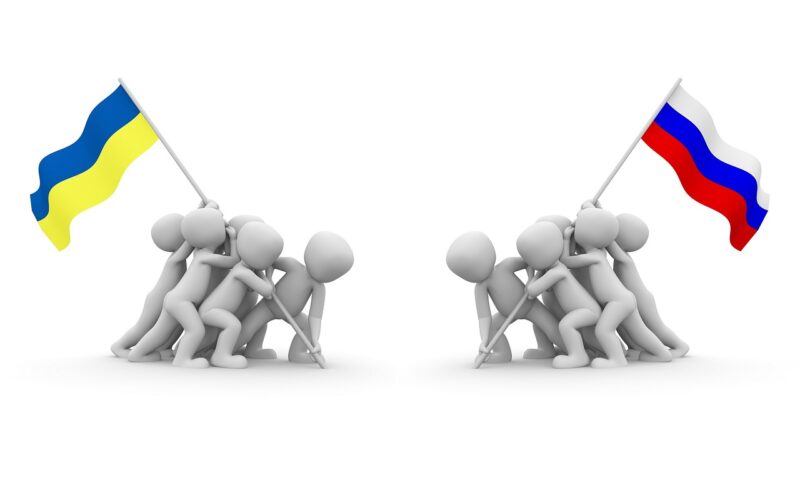Footsteps Through History: The Most Significant Cultural Conflicts and Their Outcomes
November 17, 2024

Cultural conflicts have shaped human history, leaving enduring legacies and altering the course of societies. From ancient civilizations to contemporary politics, these conflicts arose from differing values, beliefs, and practices among groups. Understanding these significant cultural conflicts helps us appreciate the complexities of human society and the rich tapestry of our collective past.
1. Defining Cultural Conflicts
Cultural conflicts arise when differing worldviews, traditions, or values clash. These conflicts may manifest in various forms, such as wars, social movements, or political disputes. They can emerge from racial, religious, or ideological differences, often leading to tensions that impact not just the involved parties but entire countries and regions.
Some notable features of cultural conflicts include:
- Identity Issues: Conflicts often center around issues of identity, where groups struggle for recognition and autonomy.
- Resource Allocation: Many cultural conflicts arise from competition for resources, whether they are land, wealth, or political power.
- Historical Grievances: Past injustices often fuel present-day conflicts, as groups seek redress or revenge for historical wrongs.
The outcomes of these conflicts can be varied, ranging from reconciliation and cultural exchange to deep-seated animosity and ongoing violence.
2. The Peloponnesian War: A Clash of Cultures in Ancient Greece
One of the earliest recorded cultural conflicts was between Athens and Sparta during the Peloponnesian War (431-404 BCE). This protracted struggle wasn’t just a military contest; it represented a clash of cultural values. Athens, with its love of democracy, art, and philosophy, stood in stark contrast to Sparta, which prized discipline, militarism, and austerity.
The war had far-reaching consequences:
- Shift in Power Dynamics: Athens’ defeat weakened its empire, leading to a shift in power toward Sparta and later Thebes.
- Cultural Contributions: Despite its defeat, the war spurred philosophical and artistic achievements, while also highlighting the fragility of democratic institutions.
- Lessons in Human Nature: Thucydides, the historian, examined themes of power, fear, and human behavior, which remain relevant in studying conflicts today.
3. The Crusades: Religious Conflict and Cultural Exchange
The Crusades (1096-1291) were a series of religious wars initiated by the Latin Church to reclaim the Holy Land from Muslim control. While these conflicts were marked by violence, they also led to significant cultural exchanges between the East and West.
The outcomes of the Crusades included:
- Cultural Exchange: The Crusades resulted in enrichments in art, science, and philosophy as Europeans encountered Islamic culture and learning.
- Tensions and Rivalries: Although some cultural exchange occurred, the Crusades also exacerbated Christian-Muslim tensions that persist in various forms to this day.
- Alteration of Power Structures: The necessity for resources to fund the Crusades led to increased power for monarchs and reduced the influence of the nobility in Europe, altering the political landscape significantly.
4. The American Civil War: A Struggle for Identity and Values
The American Civil War (1861-1865) serves as a significant example of a cultural conflict rooted in contrasting cultural identities and values. At the heart of the war was the issue of slavery, representing an ideological divide between the agrarian South and the industrializing North.
The outcomes of this defining conflict included:
- Abolition of Slavery: The war led to the emancipation of enslaved individuals, reshaping societal structures and values in the United States.
- Cultural Reconstruction: Post-war, the country grappled with how to reconstruct national identity values, particularly regarding race and citizenship.
- Ongoing Legacy of Conflict: The cultural rifts created during the Civil War era resonate in modern American society, present in ongoing debates about race, identity, and equality.
5. Nationalism vs. Globalism: Modern Cultural Conflicts
In recent years, the tension between nationalism and globalism has become a prevalent cultural conflict affecting international relations. Nationalistic sentiments often focus on the value of local culture, traditions, and sovereignty, contrasting sharply with globalist ideals that promote cooperation, multiculturalism, and universal values.
Key aspects of this contemporary conflict include:
- Political Landscapes Shift: Countries like the United States and the United Kingdom have seen a rise in nationalist sentiments, impacting immigration policies and international cooperation.
- Cultural Identity Crisis: As global connections expand, many feel a loss of cultural identity, leading to reactions rooted in nationalism and a desire for cultural preservation.
- Economic Implications: Tensions between these ideologies often lead to trade disputes, impacting economies worldwide and highlighting the complex interdependencies in the modern era.
6. Conclusion: Lessons from Cultural Conflicts
Cultural conflicts are a recurring theme throughout human history, each embodying unique lessons that resonate through time. Understanding the outcomes of these conflicts not only provides insights into our past but also equips us to navigate the complexities of modern society.
Lessons learned from historical cultural conflicts include:
- The Importance of Dialogue: Many conflicts could benefit from open communication and mutual understanding to bridge gaps between differing values.
- Adaptive Resilience: Societies often emerge stronger after resolving conflicts, adapting their values and institutions to a changing world.
- Recognition of Shared Humanity: Despite cultural differences, the core human experience connects us all, promoting empathy and promoting conflict resolution strategies grounded in respect and understanding.
By studying significant cultural conflicts and their outcomes, we can advocate for a more inclusive and peaceful future, one that acknowledges diverse narratives while seeking common ground. Let history’s footsteps guide us in shaping a world for the better.






